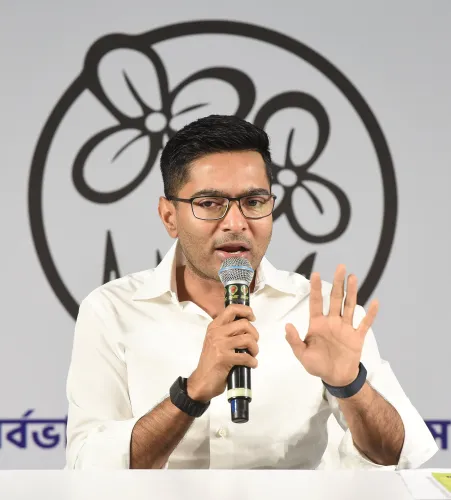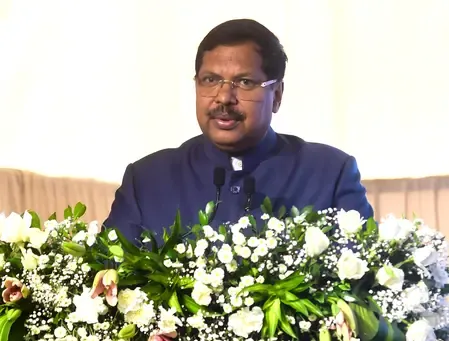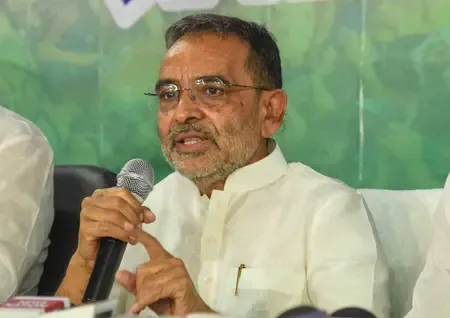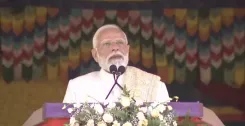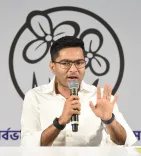How Do the Opposition and Treasury Bench Work Together for a Healthy Democracy?
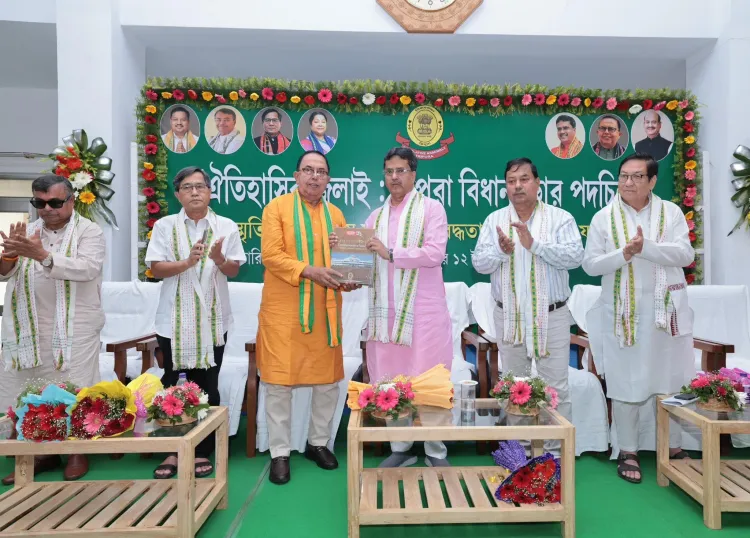
Synopsis
Key Takeaways
- Symbiotic Relationship: The opposition and treasury benches work together to enhance democratic health.
- Historical Significance: The Assembly's relocation is a key moment in Tripura's political history.
- Environmental Responsibility: The importance of trees and nature in sustaining life.
- Leadership Legacy: The contributions of Maharaja Bir Bikram in shaping modern Tripura.
- Collaborative Governance: The need for cooperation among legislators for public welfare.
Agartala, July 22 (NationPress) The Chief Minister of Tripura, Manik Saha, expressed on Tuesday that just as humans and trees rely on each other, the opposition and the treasury bench in the Assembly collaborate in a mutually beneficial relationship to sustain a robust democratic environment.
While speaking at a ceremonial event at the Tripura Assembly building, which commemorated the establishment of the Assembly and its move from the Ujjayanta Palace to its current location at the Capital Complex, Saha noted that the Tripura Assembly was founded on July 1, 1963. He highlighted that on this significant date (July 22), the Assembly transitioned from the Ujjayanta Palace grounds to its present site. Throughout Assembly sessions, numerous issues are raised and debated for public benefit, underscoring the vital roles of the 60 MLAs.
Saha stated: “To safeguard democracy, the opposition addresses various concerns, while we endeavor to provide responses. It is essential to uphold the decorum of this esteemed house, with officials playing a pivotal role. The Assembly should be regarded as a temple, and we must honor this day with the respect it deserves.”
He also proposed that in the coming year, living former Speakers and ex-Chief Ministers should be invited to the celebration. During the event, Saha planted a tree within the Assembly grounds, emphasizing that human existence is intertwined with that of trees. He remarked that nature teaches us about interdependence, urging all public representatives to take action for environmental conservation.
“Trees are crucial for everyone, as a mature tree can produce 260 pounds of oxygen. Prime Minister Narendra Modi has proclaimed the necessity to declare India as carbon-neutral, and we must strive toward this goal. Our dependence on trees mirrors the relationship within the Assembly, where both the opposition and treasury bench rely on one another,” he explained.
Parliamentary Affairs Minister Ratan Lal Nath stated that July 1, 1963, marks more than just a date; it is a significant chapter in Tripura’s rich history. He reminded attendees that while Tripura’s legislative journey began in 1963, its origins trace back to the visionary leadership of Maharaja Bir Bikram Kishore Manikya Bahadur.
Nath elaborated on how Maharaja Bir Bikram laid the groundwork for modern Tripura, significantly enhancing the state’s infrastructure, including roads, hospitals, schools, and even the Agartala airport. “Following his passing, Rajmata Kanchan Prabha Devi played a vital role in integrating Tripura with India. On September 9, 1949, she signed the Instrument of Accession, marking Tripura’s inclusion in the Indian Union,” he noted.
He further explained that after its accession, Tripura was designated a Union Territory, and the Territorial Council Act was enacted in May 1963 with the endorsement of the President of India. According to Article 239 of the Constitution, the Tripura Territorial Council was established with 30 elected and one nominated member, transitioning to the Tripura Legislative Assembly on July 1, 1963.
During the event, notable attendees included Speaker Biswa Bandhu Sen, Deputy Speaker Ram Prasad Paul, Chief Whip Kalyani Saha Roy, Leader of Opposition Jitendra Chaudhury, senior Congress MLA Birajit Sinha, and several other legislators.

